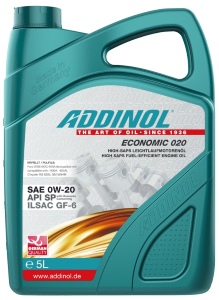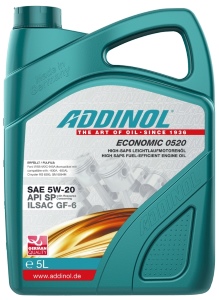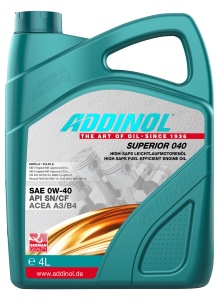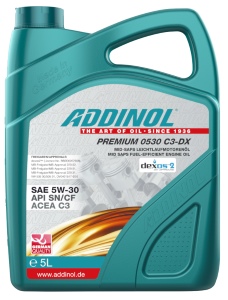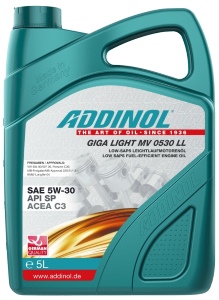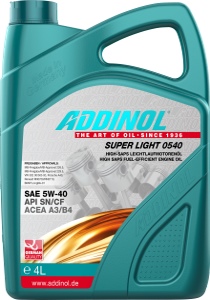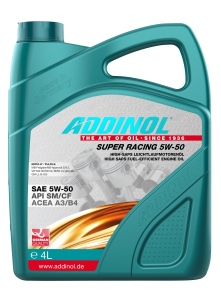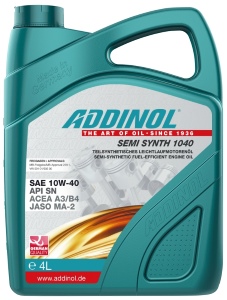


What is fuel-efficient engine oil?
Fuel-efficient oils are engine oils and transmission oils that are very thin (low viscosity) and therefore flow easily. They were developed to cause low friction losses in the motor and thus save energy. Additives such as friction-reducing additives (friction modifiers) support the fuel-efficient character. Fuel-efficient oils are generally all motor vehicle engine oils and transmission oils that save fuel compared to 15W40 engine oils or 80W90 transmission oils. Many fuel-efficient engine oils carry the note “Low SAPS” or “Low Ash” on the label. However, it is not absolutely necessary for a fuel-efficient engine oil to have the low SAPS character.
Fuel-efficient engine oils are multigrade oils with good cold resistance. They are also flowable during cold starts in winter and lubricate all components reliably. Multigrade oils consist primarily of synthetic base oils which stand out due to their improved viscosity-temperature behaviour compared to mineral oils. Fuel-efficient engine oils are therefore very temperature-resistant and efficient.
According to ACEA specifications, fuel-efficient engine oils must provide fuel savings of at least 1-3% compared to 15W40 oils. ACEA C1 requires at least 3%, ACEA C3 only 1% for xW30 oils.
What are the advantages of fuel-efficient engine oil?
- Low friction losses in the motor ✓
- Energy saving potential (fuel savings) ✓
- Good flow properties at low temperatures ✓
- Wear reduction ✓
- Temperature resistance even with high loads in the engine compartment ✓

Can fuel be saved with fuel-efficient engine oil?
Because fuel-efficient engine oils reduce friction in the engine due to their low viscosity and thus save energy, less fuel has to be burned to achieve the same engine performance as with a normal engine oil. This demonstrably saves fuel. This fuel saving is between 1% and 6%, depending on the driving style. Although there is no standardized specification for fuel-efficient oils, manufacturers such as Mercedes-Benz require fuel savings of at least 1% compared to a reference oil for fuel-efficient oils. As mentioned above, this is also required by institutions such as ACEA or API (minimum savings 1-3% depending on specification).
The savings are particularly high as long as the operating temperature in the engine compartment has not yet been reached. In this case, the excellent low temperature properties of the light lubricating oil and the good cold start behaviour, which ensures sufficient lubrication from engine start onwards, take effect. This applies to short distances, city traffic and driving in winter when the weather is cold.
Is it always worth filling with fuel-efficient engine oils instead of using normal engine oils?
No, because fuel-efficient engine oils may only be used if they have been approved by the manufacturer. Filling low-viscosity oil into an engine that has not been designed for this may cause damage. If both fuel-efficient engine oils and normal engine oils are approved for your vehicle, the decision is yours.
Basically, fuel-efficient engine oil is more expensive to purchase than normal engine oil due to its synthetic base oils and special additives. However, the costs can be quickly amortized for frequent drivers due to the fuel savings. Calculate the costs for your needs individually.
What are the viscosity classes of fuel-efficient engine oil?
Fuel-efficient engine oils are available in various SAE classes. Many multigrade oils (especially those with a low temperature viscosity of 0W or 5W) are produced as fuel-efficient engine oils, as they have to be of low viscosity even at low temperatures.
Typical viscosity classes for fuel-efficient engine oils are:
Is 10w40 a fuel-efficient oil?
Fuel-efficient engine oil of SAE class 10w40 is a special case in this consideration. As mentioned at the beginning, all engine oils that are thinner than 15w40 can be fuel-efficient engine oils if they prove the required fuel savings. So 10w40 can also be a fuel-efficient engine oil. However, according to the state of the art it is rather unusual to use 10w40 low-viscosity oils. Development has been going in the direction of using only 0w and 5w multigrade oils as fuel-efficient engine oils for some time now. Nevertheless, some manufacturers like ADDINOL still have 10w40 fuel-efficient engine oil in their assortment.
Our fuel-efficient engine oils
Below we have compiled a product selection of our ADDINOL oils, which have a fuel-efficient character.
ADDINOL ECONOMIC 020
Specifications / Approvals:
API SP with Resource Conserving
ILSAC GF-6
meets the requirements:
Ford WSS-M2C925-A, Ford WSS-M2C-930-A, Chrysler MS-6395, Ford WSS-M2C-945A, GM 6094 M
ADDINOL ECONOMIC 0520
Specifications / Approvals:
API SP with Resource Conserving
ILSAC GF-6
meets the requirements:
Ford WSS-M2C925-A, Ford WSS-M2C-930-A, Chrysler MS-6395, Ford WSS-M2C-945A, GM 6094 M
ADDINOL SUPERIOR 040
Specifications / Approvals:
ACEA A3/B4
API CF, API SN
meets the requirements:
BMW Longlife-01, MB 229.3, MB 229.5, VW 502 00, VW 505 00, Ford WSS-M2C937-A, Renault RN0710, Renault RN0700
ADDINOL PREMIUM 0530 C3 DX
Specifications / Approvals:
ACEA C3
API CF, API SN
MB 229.31, MB 229.51, VW 505 00, VW 505 01, GM Dexos 2, OV0401547-D30, MB 229.52
Fulfils the requirement acc. to:
Ford WSS-M2C917-A, GM LL-A-025, GM LL-B-025
ADDINOL GIGA LIGHT MV 0530 LL
Specifications / Approvals:
ACEA C3
API SP
BMW Longlife-04, MB 229.31, MB 229.51, VW 504 00, VW 507 00, Porsche C30
Fulfils the requirement acc. to:
OV0401547-G30, OV0401547-D30, MB 229.52
ADDINOL SUPER LIGHT 0540
Specifications / Approvals:
ACEA A3/B4
API CF, API SP
MB 229.5, VW 502 00, VW 505 00, Renault RN0710, Renault RN0700, MB 229.3, MB 226.5
meets the requirements:
GM LL-A-025, GM LL-B-025, PSA B71 2296
ADDINOL SUPER RACING 5W-50
Specifications / Approvals:
ACEA A3/B4
API CF, API SN
JASO MA, JASO MA-2
meets the requirements:
BMW Longlife-98, MB 229.3, VW 502 00, VW 505 00, GM LL-B-025
ADDINOL SEMI SYNTH 1040
Specifications / Approvals:
ACEA A3/B4, API SP, JASO MA-2
VW 501 01, VW 505 00
Fulfils the requirement acc. to
MB 226.5, MB 229.3, PSA B71 2300, Renault RN0710, Renault RN0700

